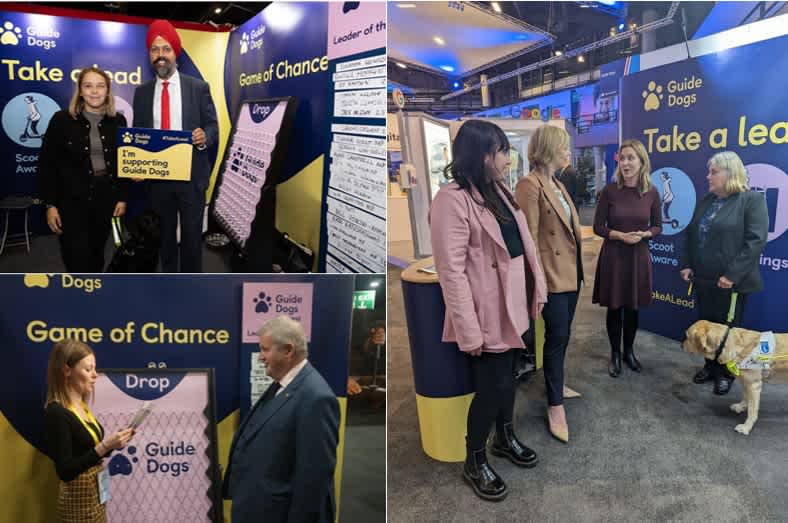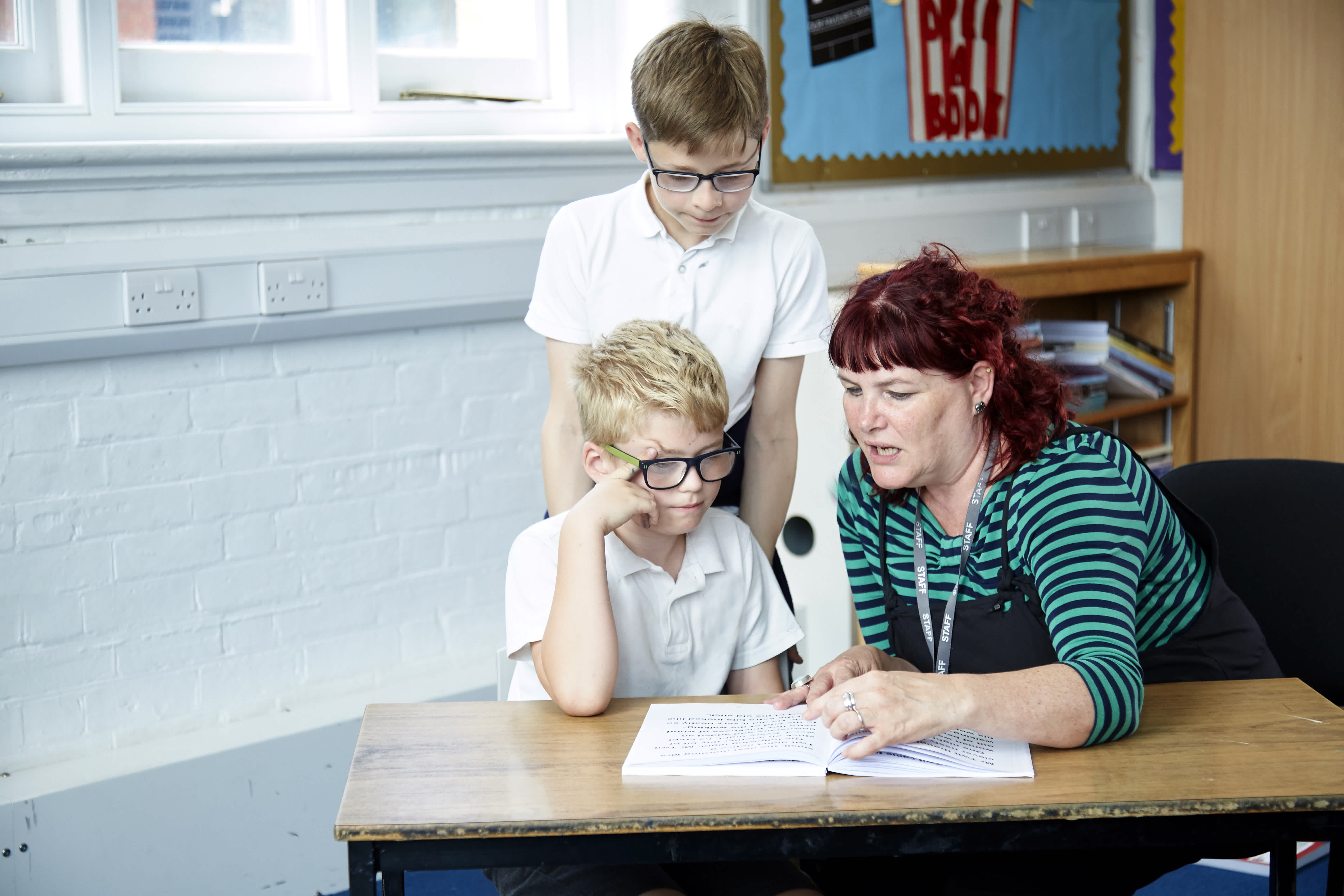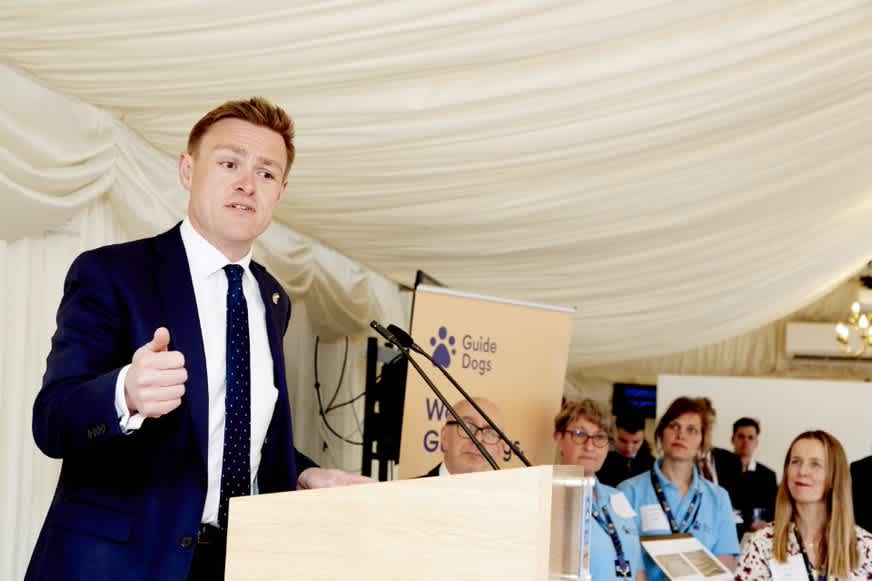Young vision impaired students shared their experiences of mainstream education and talked about the importance of specialist support for vision impaired children and young people at the Labour and Conservative Party Conferences.
18-year-old Caitlin and 16-year-old Neve spoke about the specialist support they received, which included habilitation support. Habilitation is one-to-one training for children and young people with vision impairment. It aims to develop their personal mobility, navigation, and independent living skills.
Guide Dogs wants habilitation to be an integral part of support for children and young people with vision impairment. Additionally, accessing specialist trained professional support in the classroom, such as a Qualified Teachers of the Visually Impaired (QVTI), should feature in any additional needs support plan.
Speaking at the Labour Party Conference in Liverpool, 18-year-old guide dog owner Caitlin, said: “Throughout my time in mainstream education, I have had lots of different forms of support. My local authority has always ensured I had a Qualified Teachers of the Visually Impaired (QVTI) and the appropriate equipment. Guide Dogs have also helped me to gain the necessary skills needed to live and travel independently, like any other young person thanks to the habilitation support, life skills and CustomEyes books services.
“Because of this support I’ve been able to start mainstream university, studying a course I have always wanted to do. But that doesn’t mean it has always been easy for me, I faced barriers when my A-Level exams weren’t properly adapted for me, despite assurances from the exam board. That’s why it’s so important that other young people get the support they need, so it doesn’t just become a case of luck, but they know they can access good support to help them reach their goals.”
Speaking at the Conservative Party Conference in Birmingham, 16-year-old Neve, said: “I was born visually impaired, and have attended mainstream school throughout my education. I have just started sixth form; studying English literature, history, and sociology after completing my GCSEs, in which I had a reader and a scribe. I have been given a laptop and an iPad in school to help me access my work and I am regular contact with my QVTI. I have had a good experience with school so far, but not everything has been dealt with the way it should have, I think there is definitely room for improvement when it comes to teaching children and young people with vision impairment.”

“Specialist professionals delivering services such as habilitation, which teaches children and young people independent living and mobility skills, are essential for children and young people with vision impairment. But we know that not enough children are able to access this support.
“Vision impairment is a low-incidence, high needs condition; therefore, it is vitally important that children, families, and teachers have access to high quality specialist professionals such as Habilitation Specialists and Qualified Teachers of the Visually Impaired (QTVIs).
“Many local authorities do not prioritise spending on sensory support and there is a lack of knowledge about what specialist professionals do and their value, which results in a shortage of these specialist professionals. Guide Dogs is calling on the Government to create a workforce strategy to address the shortage of specialist staff to support children with vision impairment.”
Helen Honstvet, Senior Policy, Public Affairs and Campaigns Manager at Guide Dogs

Around 80 per cent of learning takes place through sight. There are 41,000 children and young people under the age of 25 with vision impairment across the UK, so it is vital they receive the additional support they need to achieve their full potential.



